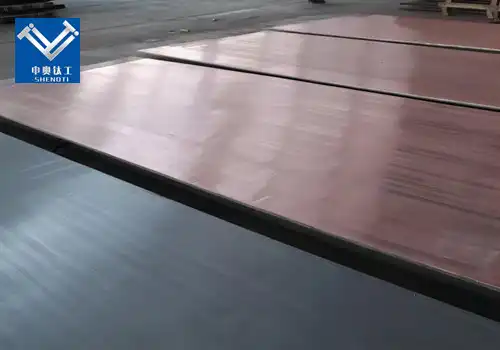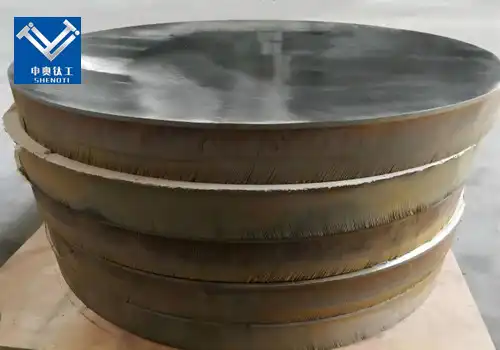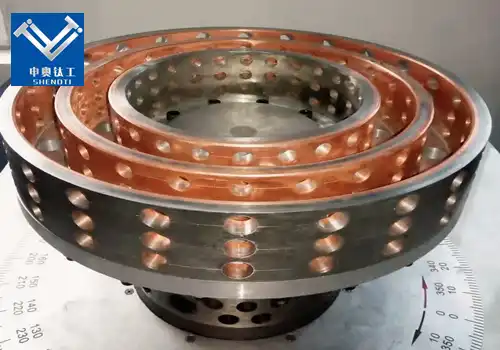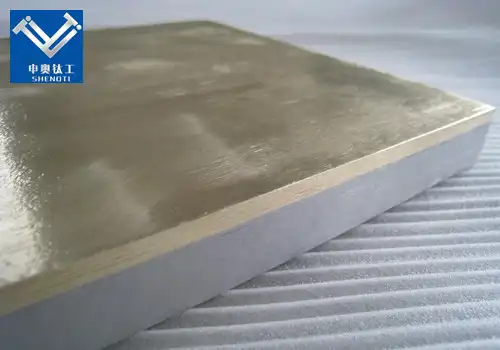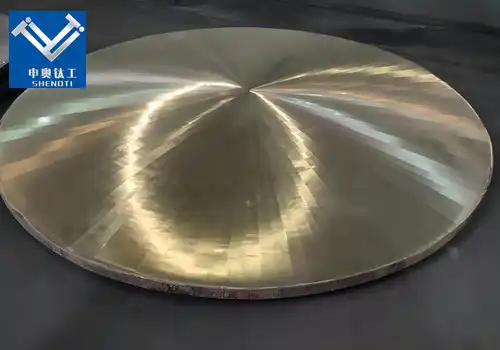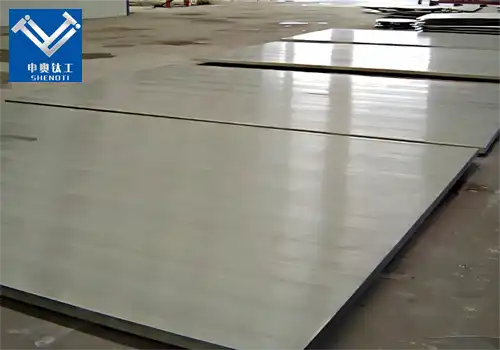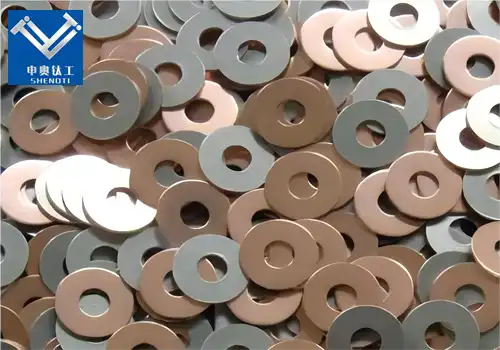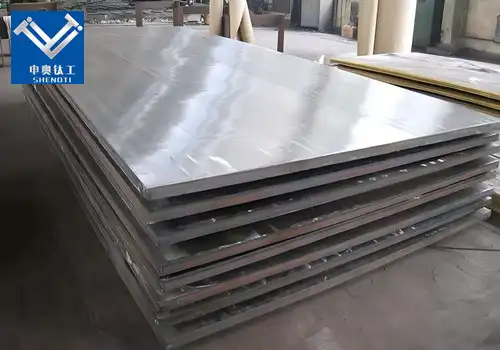
What Are Zirconium Clad Plates for Pressure Vessels?
2025-07-15 17:04:12
What Are Zirconium Clad Plates for Pressure Vessels?
Understanding Zirconium Cladding
Zirconium clad plates are composite metal materials made by metallurgically bonding a zirconium layer to a base metal—typically carbon steel (CS) or stainless steel (SS). Through methods like explosion bonding, hot rolling, or diffusion welding, the clad layer forms an inseparable metallurgical interface with the base, ensuring a durable composite that leverages both metals' properties.
Why Use Zirconium in Pressure Vessels?
Zirconium is prized for its outstanding resistance to:
Acid corrosion, including hydrochloric, sulfuric, and nitric acids
Alkaline solutions and saltwater
High temperatures and pressure cycles
Pitting and crevice corrosion
These features make zirconium clad plates for pressure vessels especially valuable in industries where failure due to corrosion can lead to catastrophic damage, production losses, or safety hazards.
Advantages of Using Zirconium Clad Plates in Pressure Vessel Fabrication
Enhanced Corrosion Resistance
Zirconium forms a protective oxide film that shields it from aggressive chemicals. When clad onto structural steel, it provides the pressure vessel with superior corrosion resistance while keeping costs lower than using solid zirconium.
Cost-Effectiveness and Resource Efficiency
Using zirconium clad plates instead of solid zirconium plates significantly reduces material costs while preserving critical anti-corrosive properties. The base layer (e.g., Q345R, ASTM A516 Gr.70) provides mechanical strength, allowing thinner zirconium layers to be effective.
Mechanical Reliability and Structural Integrity
The bonded plates exhibit excellent bonding strength, thermal expansion compatibility, and mechanical performance under cyclic pressure and thermal conditions. This ensures that the pressure vessel remains robust over its operational life.
Simplified Fabrication and Welding
Zirconium cladding allows for conventional fabrication processes, such as rolling, forming, and welding—especially when pre-bonding is performed via explosion welding. Proper edge preparation and weld overlay techniques ensure structural soundness.
Key Applications of Zirconium Clad Plates for Pressure Vessels
Chemical and Petrochemical Industry
Many chemical processes use strong acids or bases, requiring highly corrosion-resistant materials. Zirconium clad pressure vessels are used in:
Acid pickling tanks
Reactors for chlor-alkali production
Storage tanks for hydrochloric acid and sulfuric acid
Heat exchangers for corrosive fluids
Nuclear Power and Radioactive Material Handling
Zirconium's low neutron absorption cross-section makes it ideal for nuclear applications. Clad pressure vessels and components in nuclear plants benefit from:
Radiation resistance
Long operational lifespans
Reduced maintenance and downtime
Desalination and Marine Engineering
Seawater contains aggressive ions like chloride, which can cause rapid corrosion. Zirconium clad plates for pressure vessels ensure extended durability in:
Brine concentrators
Desalination preheaters
Evaporators and condensers
Pharmaceuticals and High-Purity Chemical Processes
Zirconium prevents contamination, making it suitable for:
Sterilization tanks
Reaction vessels for sensitive compounds
Solvent storage systems
Technical Parameters of Zirconium Clad Plates
Common Cladding Combinations
Cladding Metal Base Metal Typical Thickness (mm) Bonding Method
Zirconium 702/705 Q345R / SA516 / 316L 1.0–3.0 (clad) + 6–30 (base) Explosion bonding / Hot rolling
Key Mechanical and Corrosion Properties
Bonding Strength: ≥130 MPa
Peel Strength: No delamination after testing
Corrosion Rate: <0.01 mm/year in strong acids
Thermal Expansion Compatibility: Minimizes internal stress
These properties ensure that zirconium clad plates provide high performance even in extreme environments.
Why Explosion Bonded Zirconium Clad Plates Lead the Market
What Is Explosion Bonding?
Explosion bonding is a solid-state welding process that uses controlled explosive energy to bond dissimilar metals. It's especially effective for materials like zirconium that are challenging to weld conventionally.
Benefits for Pressure Vessel Manufacturing
Creates a wavy interface that enhances mechanical locking
Achieves metallurgical bonding without melting
Maintains the original properties of both zirconium and steel
Enables large-scale production of zirconium clad plates
How to Select the Right Zirconium Clad Plate for Your Pressure Vessel
Factors to Consider
Operating Environment: Acid type, concentration, temperature, and pressure
Base Metal Requirements: Yield strength, thermal expansion coefficient
Clad Thickness: Depending on corrosion allowance and lifespan
Welding Methodology: Overlay welding, TIG/MIG welding for flanges and joints
Recommended Specifications
For chemical reactors: Zirconium 702 / Q345R, 2 mm clad, 10 mm base
For nuclear systems: Zirconium 705 / SA516 Gr.70, explosion bonded
For heat exchangers: 1.5 mm zirconium with corrosion-resistant baffles
Consult with professional clad plate manufacturers to get custom configurations that match project specifications.
Why Choose Our Zirconium Clad Plates for Pressure Vessels?
We are a trusted supplier of zirconium clad plates for pressure vessels, offering:
High-quality raw materials: Certified zirconium from reliable sources
Advanced bonding technology: Explosion welding, vacuum hot rolling
Custom specifications: Tailored thickness, dimensions, and cladding ratios
Strict quality control: ASTM B898, ASME SA-264, GB/T 8547 compliance
Global logistics and technical support
Whether you’re constructing a chemical reactor, a nuclear processing tank, or a seawater heat exchanger, our zirconium clad plates deliver superior performance and extended service life.
Elevate Your Pressure Vessel Performance with Zirconium Clad Plates
In today’s high-risk, corrosion-prone industrial environments, reliability is everything. Zirconium clad plates for pressure vessels offer an optimal combination of corrosion resistance, mechanical strength, and cost-efficiency. They are the smart choice for industries committed to long-term operational safety and efficiency.
By choosing the right zirconium clad material, design, and fabrication process, you’ll maximize the lifespan and performance of your pressure vessels—while significantly lowering total cost of ownership.
Contact Us
Ready to enhance your pressure vessel solutions with zirconium clad plates?
Email: zh@baojiti.com.cn
Website: www.shenaocladplate.com
Company: Baoji City ShenAo Metal Materials Co., Ltd.
Address: No. 68 Gaoxin Road, Baoji High-Tech Zone, Shaanxi, China
Let us support your project with materials that meet the highest standards of performance, safety, and sustainability.
YOU MAY LIKE











